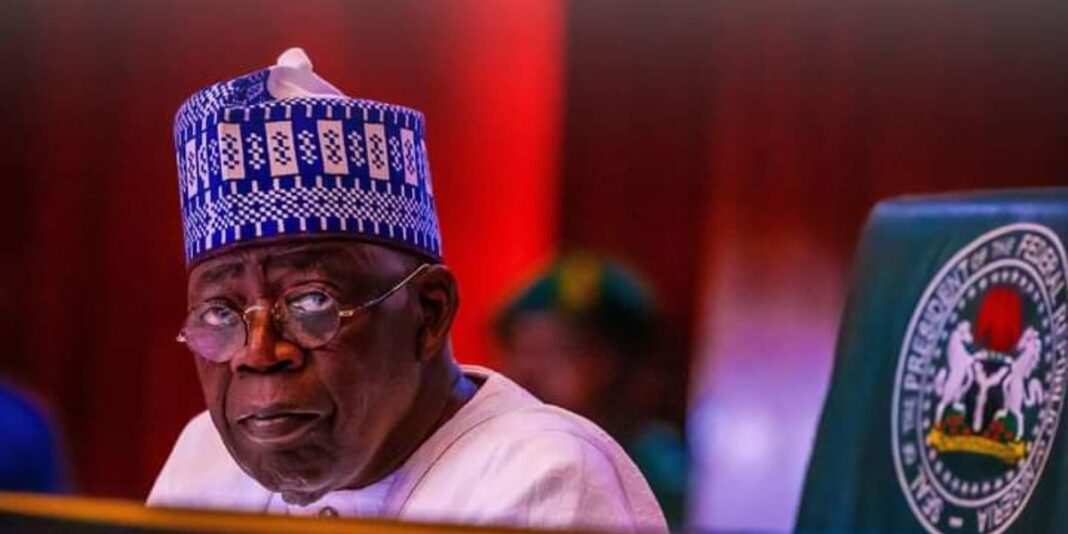Calls are mounting for President Bola Ahmed Tinubu to declare a state of emergency in Benue State, mirroring the recent action taken in Rivers State. The demands, echoed by several Nigerians, civil society organizations, and the Christian Association of Nigeria (CAN), follow a wave of brutal attacks that have left over 200 people dead across communities in the North-Central state within days.
Thousands have been displaced as a result of the violence, prompting street protests in the state capital, Makurdi. President Tinubu, describing the killings as “inhuman” and “anti-progress,” pledged decisive action—but many Nigerians feel this is not enough.

The Yelwata Massacre
According to reports by our source, the latest and deadliest attack occurred on Friday in Yelwata, Guma Local Government Area, just two weeks after the Chief of Army Staff, Lt. Gen. Olufemi Oluyede, visited the state in a bid to quell violence. Armed men stormed the town’s market square around 10 p.m., reportedly killing over 100 people, mostly internally displaced persons (IDPs) seeking shelter in nearby stores.
Survivor Achin Mathias recounted that while some attackers fired indiscriminately, others used machetes. The assailants—allegedly Fulani militia—also set buildings ablaze, leaving some victims burned beyond recognition.
Though Benue Police spokesperson ASP Edet Edeme confirmed the attack, he withheld official casualty figures. Yelwata, which borders Nasarawa State, has experienced repeated violence, including a 2023 military airstrike that mistakenly killed herders recovering seized cattle.
Data from the Armed Conflict Location & Event Data Project (ACLED) indicates that more than 800 people have been killed and nearly 400 kidnapped in Benue in the past two years alone.

Root Causes: Land, Climate, and Identity
The conflict is driven largely by the prolonged farmer-herder crisis in Nigeria’s Middle Belt. Fulani herders, seeking pasture for their cattle, often clash with local farmers over land and water. The tension is compounded by environmental degradation, including desertification and erratic rainfall, forcing migration southward into already strained areas like Benue.
“Rapid population growth and diminishing resources have created a feedback loop of stress and violence,” explains security analyst Kabir Adamu.

Religion also plays a role: most Fulani are Muslim, while the majority of Benue’s farmers are Christian. Critics argue that government failure to address both economic and security needs has allowed the violence to fester.
Public Outrage and Political Pressure
In the wake of the recent attacks, Nigerians have renewed criticism of the federal government’s handling of security nationwide. While President Tinubu issued a statement via his spokesperson, Bayo Onanuga, condemning the killings and directing security agencies to act, many believe a stronger response is warranted.
Activists like Rinu Oduala highlighted what they perceive as double standards: “Zero deaths in Rivers—state of emergency. Over 200 dead in Benue—no state of emergency. Tinubu, please resign. The evil you have done is enough,” she posted on X.
Human rights lawyer Deji Adeyanju similarly questioned why Benue has not seen the same level of federal intervention as Rivers, where no deaths were reported before emergency rule was declared.

CAN and Opposition Demand Emergency Rule
The Christian Association of Nigeria (CAN), while expressing sympathy with affected families, called on the federal government to declare a state of emergency in the hardest-hit communities and reinforce security deployments.
“Benue has suffered recurrent violence, often met with inadequate response. Justice must prevail to end the cycle of impunity,” CAN President Daniel Okoh said in a statement.
Opposition leaders also weighed in. Former Vice President Atiku Abubakar condemned the government’s “hollow assurances,” while Labour Party’s Peter Obi criticized President Tinubu’s absence in Benue and Niger during times of crisis.
Tinubu’s Response and Planned Visit
Amid growing backlash, Tinubu postponed a scheduled trip to Kaduna and will now visit Benue to assess the situation. The presidency confirmed that he will meet with stakeholders and security personnel already deployed in the state.
However, sources close to the presidency suggest Tinubu is unlikely to declare a state of emergency in Benue, asserting that unlike Rivers, Benue is not undergoing a political crisis. They argue that what is needed is a more robust security response rather than suspension of democratic governance.
Mixed Reactions from Citizens
Not everyone agrees with the calls for emergency rule. Some Benue residents and supporters of Governor Hyacinth Alia believe the state is being unfairly targeted.
“Those calling for emergency rule are ignorant of the situation on the ground,” said Roberts Wendeh on Facebook. “Such a move could impose leadership that may worsen the crisis.”
Others argue that political factors are at play. “Benue is not an electoral decider,” wrote Bright Chukwudi Ogbonna. “Unlike Rivers, it doesn’t carry the political weight needed to prompt immediate federal action.”
Conclusion: Emergency Rule or Comprehensive Reform?
While the killings in Benue are not new, the scale of recent violence has reignited national debate on how to respond to insecurity. Whether Tinubu yields to pressure and declares a state of emergency remains uncertain—but one thing is clear: many Nigerians are demanding more than words. They want decisive action to end the bloodshed and restore peace.
As the president prepares to visit Benue, the question remains—will it lead to real change or more of the same?




